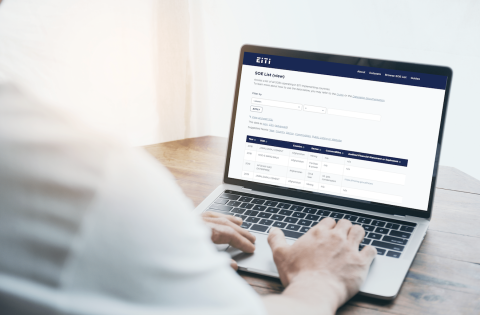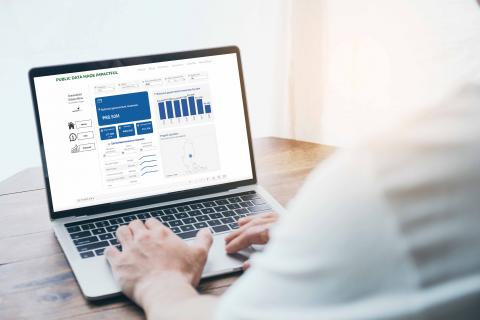
On the eve of the 42nd EITI Board Meeting in Kyiv, EITI Ukraine hosted a roundtable on the EITI’s transition from a focus on EITI reporting toward encouraging systematic disclosure
A quiet revolution is taking place within the EITI. Since its early years, multi-stakeholder groups were established in each EITI implementing country with the aim of collecting information from companies and government agencies and publishing this data in EITI Reports. Nearly 400 reports have been published to date, in many cases providing unprecedented access to comprehensive information on the governance of the oil, gas and mining sectors.
But in this digital age, people are increasingly expecting to access data that is timely and available online. For EITI implementation, this means that data needs to be “mainstreamed”. In other words, data that is required to be disclosed by the EITI Standard should be made accessible through company and government systems. This shift is already happening – companies are doing this by increasingly providing the information required by the EITI in their annual financial reports or other publications. Government agencies are also embracing open government and open data across the world, so that citizens can access up-to-date information. Technology is opening up new opportunities to promote informed public debate, shifting the focus from collecting information to analysing it. The roundtable took stock of these emerging best practices.
The meeting was opened and chaired by Oleksiy Honcharuk from Ukraine’s Better Regulation Delivery Office (BRDO). The BRDO focuses on improving regulation by establishing partnerships between government and business. Andrii Kitura, Independent Adminstrator from EY, presented EITI Ukraine’s work on electronic EITI reporting.
Ana Carolina González, an EITI Board member from Colombia, highlighted the shift from collecting data to data visualisation. Citizens were interested in what was happening in their regions, not aggregated numbers. “Once you provide them with what they interested in, they use the data,” she said. “Civil society in Colombia hasn’t been using the data much because it was outdated. It will be interesting to see whether they start using it now that it’s coming online.”
Pablo Alfonso Anzorena Lozoya, Director Hydrocarbon Operations from the Ministry of Finance in Mexico reinforced this message, adding that “ultimately, all the information we are publishing and gathering are for the good of the people.” But there are challenges, such as the cost of technology and the continued need for an independent administrator to review data quality.
Lilya Shushanyan, head of EITI Armenia, showcased their EITI website, which provides access to granular information. “You can find any data relevant to the EITI. For instance, you can find any study regarding any mine in Armenia,” said Shushanyan. “We don’t just need huge amounts of information – that’s information noise. We need useable data which can drive impact and reform, otherwise we can’t have EITI in our country. The next step is to make sure our citizens use this resource, and to get them engaged.”
The EITI Secretariat, Board and supporters need to consider how these innovative online approaches to transparency can be supported, deepened and replicated across all 52 countries.




